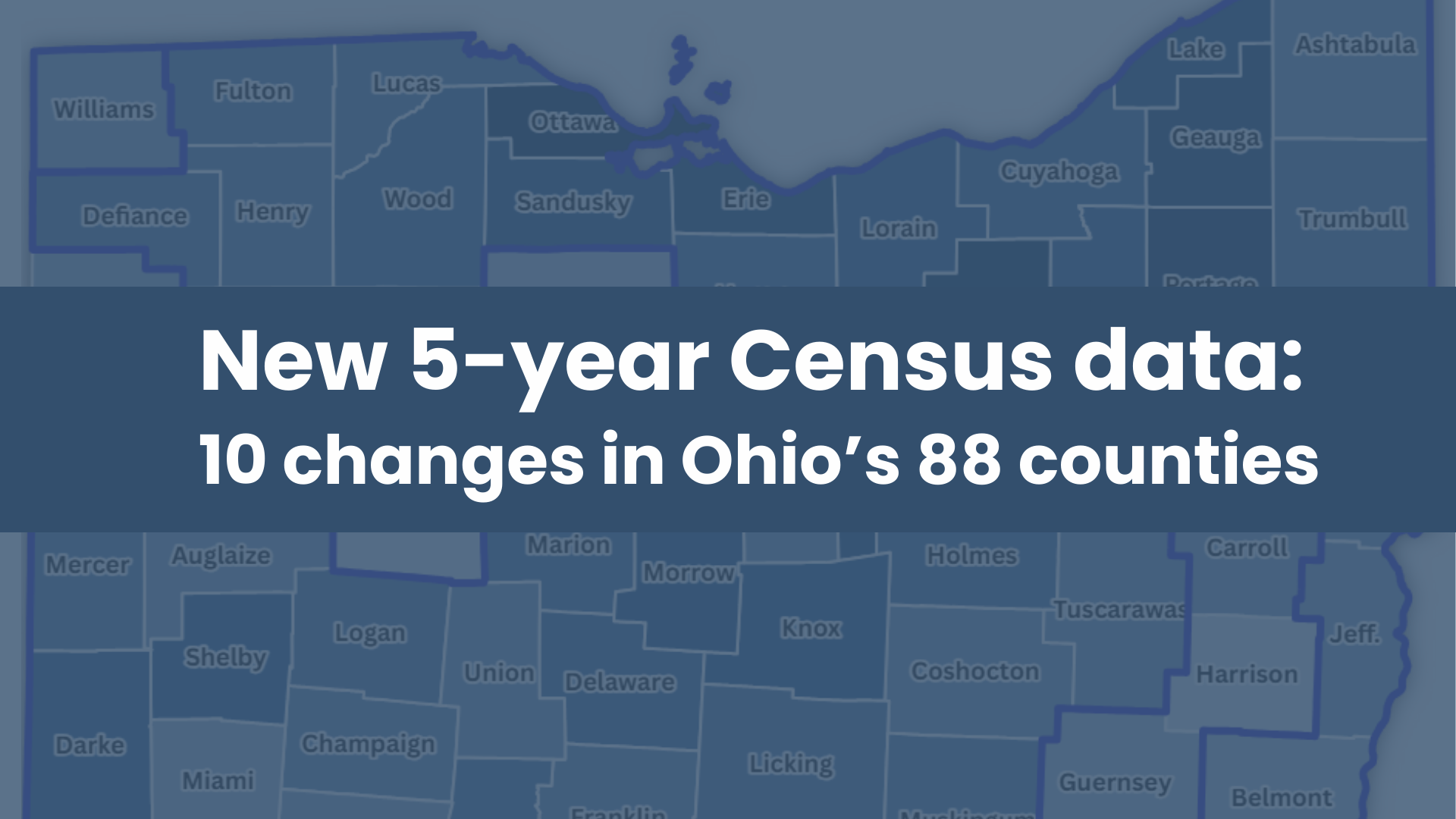Community Solutions has previously noted that the drafting of Ohio’s over $2.5 billion SFY 2025-26 capital budget legislation is already underway in the Ohio General Assembly. A new addition this year is the $700 million general revenue-funded One-Time Strategic Community Investment Fund, established in last year’s state budget. These funds are notable for their flexibility, free from the constraints typical of capital budget requests, such as bondability requirements.The competition for both pots of funds is expected to be fierce. Historically, successful groups have employed outside lobbying assistance and held multiple meetings with key legislators. This approach has enabled several Greater Cleveland health and human service organizations in the past to secure state capital bill funding.
What is the Greater Cleveland Funders Collaborative?
A recent development is the Greater Cleveland Funders Collaborative's (GCFC) advocacy for health and human service groups. Late last year, they released their Northeast Ohio Human Service State Capital Budget Priorities, sharing them with Governor Mike DeWine and Ohio General Assembly leaders. This marks a first in coordinated advocacy by a funders group for state funding applicants, reflecting a philanthropic community increasingly engaged in advocacy. Unlike other external advocacy groups, one or more GCFC members have invested their own funds in these projects, giving them even greater credibility in the legislative process.
The Greater Cleveland Funders Collaborative is a partnership of 50 foundations, nonprofits, and governments.
Launched in 2021, GCFC is a partnership of 50 foundations, nonprofits, and governments. It builds on the Greater Cleveland Covid-19 Rapid Response Fund’s work, which provided over $19 million to nonprofit organizations at the pandemic’s onset. GCFC aims for long-term policy changes to promote economic well-being and resilience in the nonprofit and human service sectors.Maryam Keifer, the Director, Public Policy at United Way of Greater Cleveland, and an active participant in the GCFC said that the group “embarked on a process to prioritize and elevate FY 2025-26 State Capital Budget requests from non-profit health and human service organizations in Cuyahoga County. As a collaborative of funders committed to building resilience in the nonprofit community and increasing advocacy efforts, we felt that it was important for us to formally support State Capital Budget requests in our region and bring the legislature’s attention to these important projects.”Marcia Egbert, Program Director: Thriving Families and Social Justice with the George Gund Foundation points out that “state capital budgets have not historically focused on health and human service projects. Yet, we know these requests represent some of the most urgent needs in our community, especially as we continue to recover from the pandemic.” Adding, “GCFC is eager to help lift the profile of these much-needed, must-do projects.”
Six Greater Cleveland Funders Collaborative-endorsed projects
The six GCFC-endorsed projects include three focused on behavioral health, two of them aimed at enhancing placement options for children in county custody. Another project aims to offer vocational training in building maintenance and construction skills. Additionally, one seeks to establish an advanced hospice center, while the final project addresses urgent repairs and upgrades for permanent supportive housing and early learning facilities.
Leaders of the endorsed health and human service projects expressed appreciation for the organized support.
Leaders of the endorsed health and human service projects expressed appreciation for the organized support. Lori D’Angelo, Ph.D., Executive Director of Magnolia Clubhouse described their proposed project as “vital to the operations of Magnolia Clubhouse,” and said that it would “expand capacity by over 50 percent.” She said their project also positions Magnolia Clubhouse to “lead the expansion of the Clubhouse model across the state of Ohio.”Eric Morse, the CEO of The Center said they were “honored to have been vetted and chosen by the local funders collaborative.” He described the Center’s project as “being a top priority of County Executive Chris Ronayne and Cuyahoga County,” and that the support of the Greater Cleveland Funders Collaborative could serve as leverage for securing “full funding to create the Children’s Wellness Campus.”
The Centers for Families and Children and Cleveland Christian Home: The Child Wellness Campus at Cleveland Christian Home
The project addresses the local and statewide crisis-level shortage of safe and appropriate placement options for youth in county custody who have experienced severe trauma and family disruption. It will offer a comfortable, modern, and trauma-informed environment with 58 specialized beds for emergency child placement and residential treatment. This facility will provide a safe and therapeutic space for more than 500 children each year as they recover from trauma with a goal of stepping down into a less restrictive level of care in the community. The campus transformation will promote a comprehensive model dedicated to county child placements with seamless step-down and step-up options, keeping youth close to home, minimizing their length of stay, and focusing on trauma prevention, recovery, and a path back to their families.
Hospice of the Western Reserve: Center for Community Engagement and Hospice Care
The project will provide an advanced new hospice center on the Lake Erie shoreline designed to meet the acute care needs of terminally ill patients, support for their families, and provide flexible and accessible space for grief services, education, and community meetings. The new facility will replace the Hospice of the Western Reserve's original and aging hospice house and will transform the adjacent vacant parcel into a vibrant resource for the community, hospital systems, terminally ill patients, and their families. In the new building, the community will be able to access flexible meeting space in the bereavement center, and Cuyahoga Community College will have classes for healthcare students where they will obtain clinical experience and mentoring in the hospice center.
Lutheran Metropolitan Ministry (LMM): Workforce Training Center
The Workforce Training Center will house LMM’s new Building Maintenance & Repair (BMR) program and will train individuals to fulfill available jobs in building maintenance, interior finishing, remodeling, and light construction. The Center will provide avenues to entrepreneurship, maintenance positions, and the construction trades. In addition, the Center will support the expansion of LMM’s successful Culinary Arts Training program that has placed 400 individuals in employment since 2016. This project will create a storefront cafe social enterprise and culinary training kitchen that will generate income for operations and additional space to support various student cohorts.
Magnolia Clubhouse: Accessibility, Integration, and Expansion of Magnolia Clubhouse Facilities
This project will provide Magnolia Clubhouse, a model program for people living with serious mental illness, with renovations, expansion, and ADA accessibility which will increase program capacity by 50 percent. Magnolia Clubhouse fills a critical void in the mental healthcare system by providing its Clubhouse members with education, socialization, and employment services that helps people with mental illness increase their capacity to live independently. Magnolia Clubhouse currently serves 80 to 90 people per day and maintains an onsite clinic that serves 100 people per year.
OhioGuidestone: Behavioral Health Residential Treatment Center
This project will renovate an existing Cuyahoga County property and update it for use as a Behavioral Health Residential Treatment Center to serve as a Psychiatric Residential Treatment Facility in support of the OhioRise program. This home and property will accommodate all the therapeutic, recreational, and living spaces needed for youth and adult clients with mental health or substance use disorder needs. Spaces will be set aside for private family therapy and family visitation, on-line educational supports, and psychiatric and medical services necessary to support this population.
Spaces will be set aside for private family therapy and family visitation, on-line educational supports, and psychiatric and medical services necessary to support this population.
YWCA: Prospect Place
This project addresses urgent repairs and upgrades needed for YWCA’s Heating Ventilation and Air Conditioning (HVAC) system at 4019 Prospect Avenue. This building houses multiple programs including Independence Place, a permanent supportive housing project that provides 23 apartments to young adults who have experienced homelessness, been in the foster care system, and a diagnosed disability. Young adults receive on-site supportive services that drive self-sufficiency and significantly reduce the likelihood that a young person will return to homelessness. In addition, this building houses YWCA’s trauma- informed, two-generational Early Learning Center that serves 50 students and their families. The Early Learning Center helps children successfully transition to kindergarten and strengthens parents' resiliency, child development knowledge, and ability to advocate for their child.







